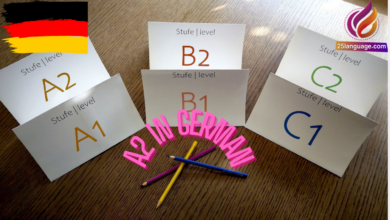Nouns and pronouns in the accusative and dative

Today we are going to talk about Nouns and pronouns in the accusative and dative.
As was noted previously when the concept of case was introduced for pronouns there are four cases used in German.
Recall that the nominative case in German corresponds to the subjective case in English and applies to nouns and pronouns used in a sentence as the subject of a verb.
Nouns (and pronouns) that are used as objects of transitive (action) verbs are in the English objective case. If these are direct objects (recipients of the action of a verb), then these nouns are in the accusative case in German.
If indirect objects, then these nouns are in the dative case in German. Essentially, the English objective case is divided, in German, into an accusative case used for direct objects and a dative case used for indirect objects.
Pronouns
For comparison with English, recall that the singular personal pronouns (nominative case) are “I”, “you”, and “he/she/it” (1st, 2nd, and 3rd persons). The objective case, personal pronouns in English are “me”, “you”, and “him/her/it”—and are used for both direct and indirect objects of verbs. For example:
He gives it [the Direct Object] to me [the Indirect Object].
The German accusative case, personal pronouns (singular) are: mich, dich, ihn/sie/es. The German dative case, personal pronouns (singular) are: mir, dir, ihm/ihr/ihm. Thus, the above English example sentence becomes, in German:
Er gibt es [the Direct Object] mir [the Indirect Object].
Because mir is a dative pronoun, there is no need in German to use a modifier as in English, where “to” is used as a signal of an indirect object. The following table summarizes the German pronouns in three cases for both singular and plural number:
| Singular | Plural | |||||
| NOM. | ACC. | DAT. | NOM. | ACC. | DAT. | |
| 1st person | ich | mich | mir | wir | uns | uns |
| 2nd person | du (Sie*) | dich (Sie*) | dir (Ihnen*) | ihr (Sie*) | euch (Sie*) | euch (Ihnen*) |
| 3rd person | er, sie, es | ihn, sie, es | ihm, ihr, ihm | sie | sie | ihnen |
We hope to see in our next lessons and we hope you enjoyed our lesson today about Nouns and pronouns in the accusative and dative




























